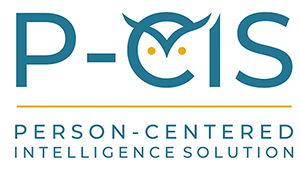P-CIS assessment software has been developed in partnership with Microsoft and in synergy with the TCOM assessment approach to automatically combine and analyse longitudinal assessment data, illustrate progress across needs, risks and strengths, and learn what works for whom.
A key part of the TCOM England initiative is to overcome long-standing challenges in the use of data to inform care and the role of technology in that process. Only then can we harness the power of assessment data in an ethical and meaningful way, to make decisions that improve outcomes, services and systems.
What problems are we solving?
Even when a myriad of data is available from multiple sources, accessing its insights to support decision-making on a day-to-day basis has not been possible. Without appropriate analytical tools, gaining insights from data requires costly support and can delay the positive impact quality data assessment can bring.
Technology is part of the solution, but there are anxieties about giving it a critical role in a sector where professional judgement will always be key. Standard artificial intelligence (AI) or machine learning can simply encourage us to repeat decision-making patterns and entrench biases, rather than empowering us with insights to support positive change.
Finding a solution
Opeeka’s P-CIS (Person-Centred Intelligence Solution) has been developed in synergy with TCOM’s assessment approach as the world’s first assessment software to automatically combine and analyse multiple sources of assessment data, track and analyse progress across needs, risks and strengths, illustrate outcome trajectories, and learn what works for whom.
Opeeka’s P-CIS analysis technology is as powerful, but very different to standard machine learning or standard AI; it learns the drivers of positive outcomes and offers insights that enable professional judgement rather than restrict it. This process reinforces good care decisions, reducing and preventing individual or institutional bias.
As an online assessment software and outcome analysis tool, P-CIS transforms all sources of assessment data into highly useful information about a person’s story and their changes in circumstances during care or within services. This information is then available to inform care-planning and decision-making in a way that it never has been possible before.
As an outcomes analysis and empirical research tool, P-CIS enables ethical, unidentifiable sharing of data from multiple assessment sources and agencies. This platform facilitates shared sector learning in a way that has not been achievable before.
Instead of restricting professional judgement and opportunity for change, P-CIS works to enable professional judgement by generating meaningful insights and visualisations that can be drawn upon to make evidence-based, person-centred, outcomes-focused decisions in practice and in management.
At the same time, using this platform TCOM England will be able to provide shared learning about population needs and trends, illustrate the trajectories of positive outcomes based on reliable data and meaningful sample sizes, and feedback learning that will revolutionise our sectors ability to improve the outcomes of care.
P-CIS can analyse any assessments allowing organisations to collate information all in one place. Key assessments including the Strengths and Difficulties Questionnaire (SDQ) are already populated.
P-CIS is built to the highest standards of data security and data protection legislation (GDPR).

